Computational Thinking Worksheets Results
Computational Thinking - Carnegie Mellon University
Computational Thinking 2 Jeannette M. Wing My Grand Vision for the Field • Computational thinking will be a fundamental skill used by everyone in the world by the middle of the 21st Century. – Just like reading, writing, and arithmetic. – Imagine every child knowing how to think like a computer scientist!
https://url.theworksheets.com/6goa184 Downloads
Preview and Download !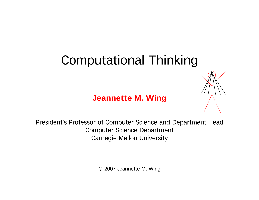
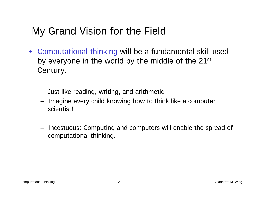
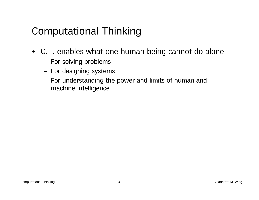
2.3 Computational Thinking - EdTech Books
and why the world works) and design thinking (which is used by designers and engineers to design objects and experiences). Consider the steps of each of these widely-used problem-solving models: Computational Thinking Scientific Thinking Design Thinking 1. Decomposition 2. Pattern Recognition 3. Abstraction 4. Algorithm Design 5. Evaluation 1 ...
https://url.theworksheets.com/6gob93 Downloads
Preview and Download !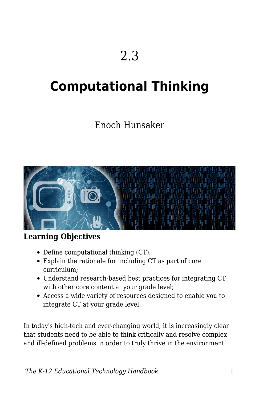
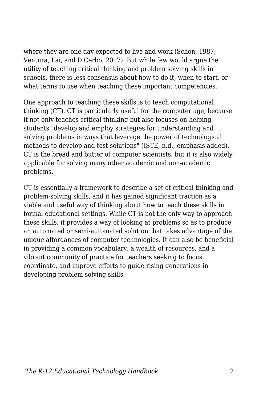
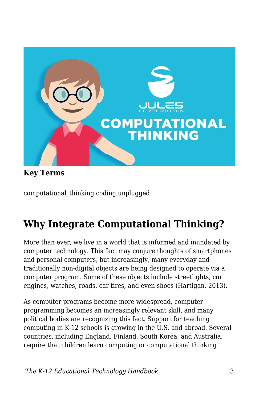
Computational Thinking - Carnegie Mellon University
Computational thinking is using heuristic reason-ing to discover a solution. It is planning, learning, and scheduling in the presence of uncertainty. It is search, search, and more search, resulting in a list of Web pages, a strategy for winning a game, or a coun-terexample. Computational thinking is using massive amounts of data to speed up ...
https://url.theworksheets.com/6god66 Downloads
Preview and Download !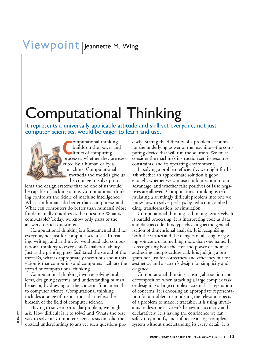
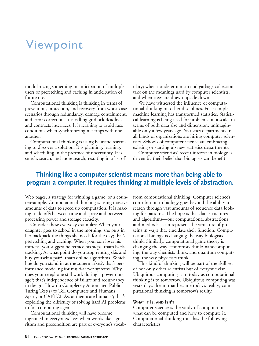
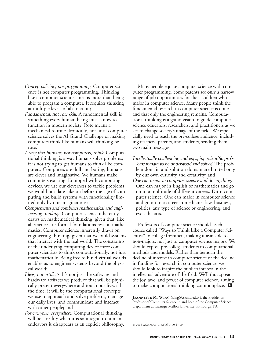
Assessing Computational Thinking - Virginia Tech
Please complete the activity worksheets as clearly as possible and hand them in when you are finishedas possible and hand them in when you are finished with each activity. Your responses will remain anonymous and any ... Computational Thinking (PACT)Computational Thinking (PACT) Research Questions 1. Iht th ii t diilfIn what ways are the ...
https://url.theworksheets.com/2n9x100 Downloads
Preview and Download !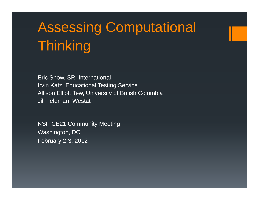
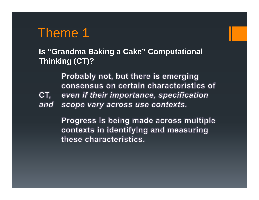
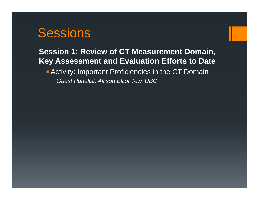
Worksheet 1 Computational thinking - Swanlea School
Worksheet 1 Computational thinking Unit 5 Algorithms Task 2 4. “Beetle” is a dice game for 2 or more players, played with a single six-sided die. The objective is to be the first to draw all parts of a beetle. At each turn, a player rolls the die to decide which part can be drawn. The body has to be drawn first, by throwing a 6.
https://url.theworksheets.com/6goe93 Downloads
Preview and Download !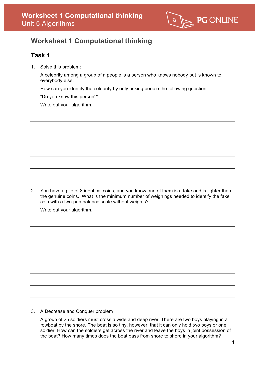
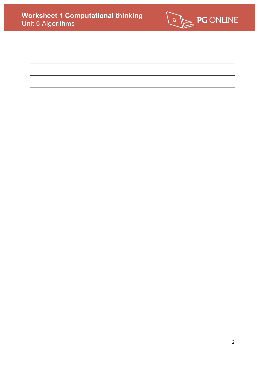
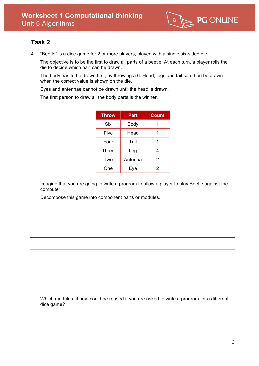
UNPLUGGED Computational Thinking - Code.org
Print one Computational Thinking Kit per group Print one Computational Thinking Assessment for each student GETTING STARTED (15 MIN) 1) Vocabulary This lesson has four new and important words: Algorithm - Say it with me: Al-go-ri-thm A list of steps that you can follow to finish a task Decompose - Say it with me: De-com-pose
https://url.theworksheets.com/3kxr135 Downloads
Preview and Download !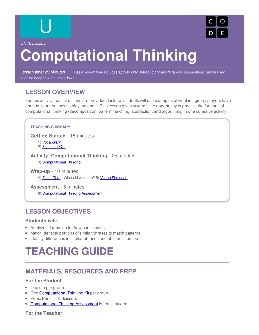
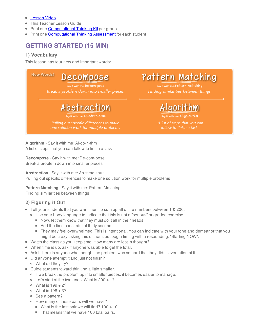
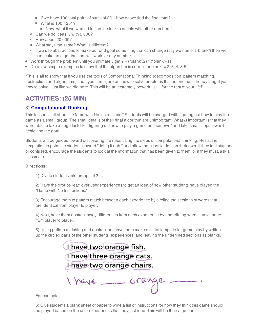
Computational Thinking: Cut Hive Logic Puzzles - WordPress.com
different way. You start to use some of your natural computational thinking skills: pattern matching against situations you have seen before, for example. That will let you solve puzzles faster with less thought. It will also allow you to do generalisation, widening the situations you pattern match against. You will, with experience, start to
https://url.theworksheets.com/3puf172 Downloads
Preview and Download !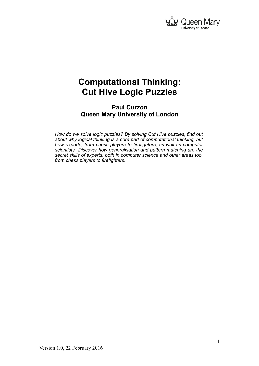
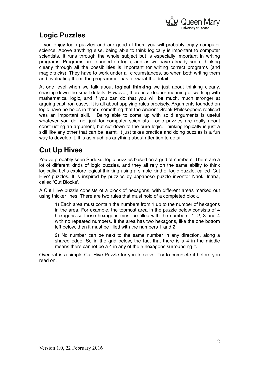
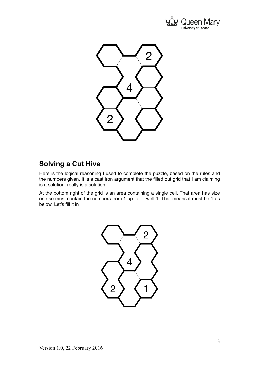
Computa onal Thinking - Mystery sequence - Code Avengers
Computa onal Thinking - Mystery sequence page 1 The three blocks of code below create a pattern using 3 paths. You will draw the 3 paths and then create the code for 3 more. Instructions: 1. Draw 3 paths following the code instructions in the three boxes. - At ‘ pen down’ on each path you are facing East (to the right)
https://url.theworksheets.com/6gof68 Downloads
Preview and Download !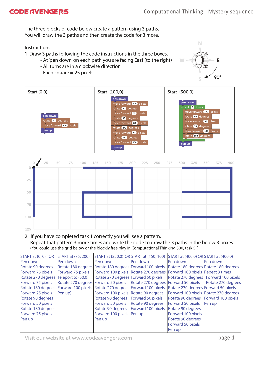
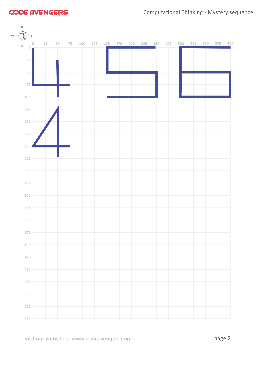

Development of Student Worksheets Based Computational Thinking for ...
Worksheets based on Computational Thinking material for the derivatives of algebra fuction for high school students that are valid and practical. The resulting LKPD contains CT steps, namely abstraction, generalization, ... Computational Thinking is an ability that must be possessed and learned by students in learning. So it is important in ...
https://url.theworksheets.com/6goi72 Downloads
Preview and Download !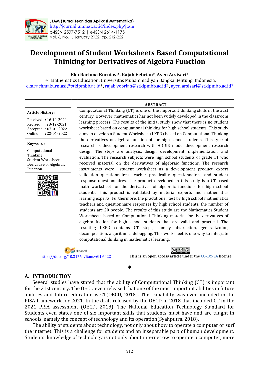
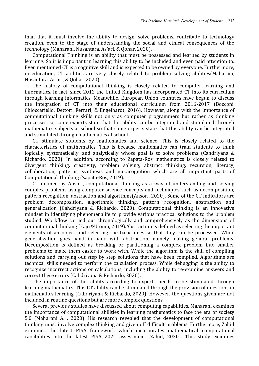
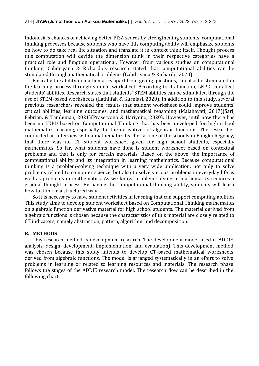
Computational Thinking in Action
What is Computational Thinking? Computational Thinking is a set of skills that underpin learning within the Digital Technologies classroom. These skills allow students to engage with processes, techniques and digital systems to create improved solutions to address specific problems, opportunities or needs. The six Computational Thinking skills:
https://url.theworksheets.com/6gok87 Downloads
Preview and Download !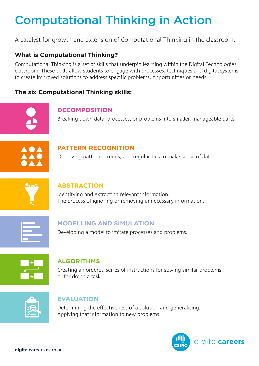
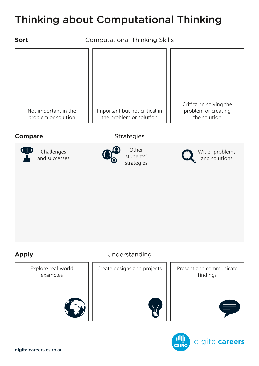
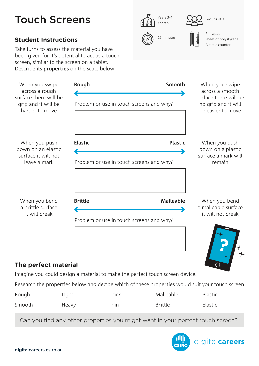
Next results >>